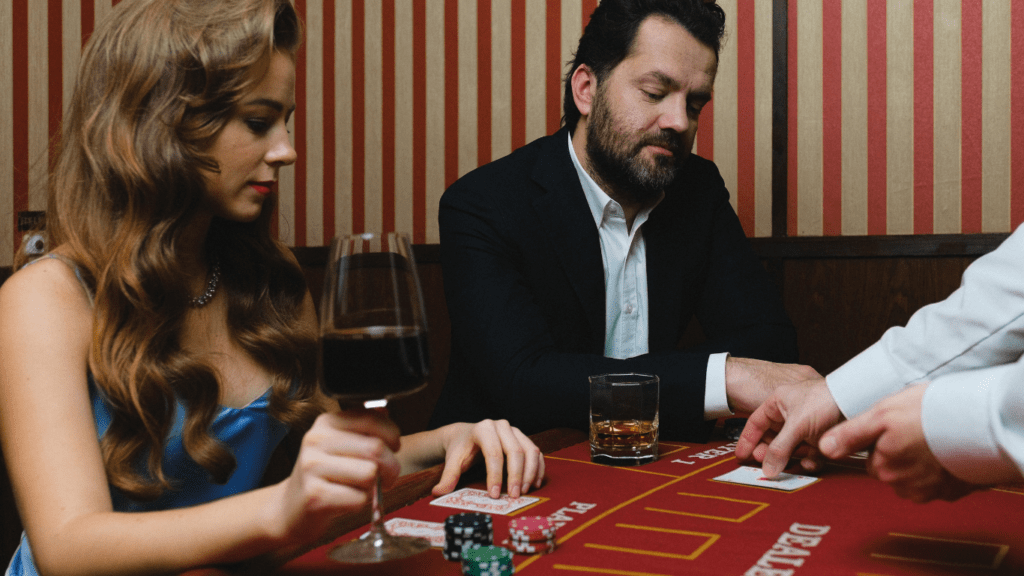Understanding High-Stakes Poker
High-stakes poker encompasses more than strategic gameplay. It engages psychological elements that influence decision-making. Players face immense pressure while managing substantial financial risks. These factors create a unique environment where sharp mental acuity becomes crucial.
Analyzing opponent behavior constitutes a key aspect of high-stakes poker. Players observe subtle physical and behavioral cues to deduce potential strategies. These observations provide a tactical advantage, allowing adept players to adjust their actions accordingly.
Emotional control holds significant importance during high-stakes games. Anxiety and fear can impair decision-making, leading to costly mistakes. Maintaining composure enables players to think critically and react judiciously under pressure.
Risk assessment differentiates amateurs from seasoned professionals. Decisions impact financial standing, requiring careful consideration of probabilities and potential outcomes. A calculated approach minimizes losses and maximizes potential gains.
Adapting strategies is vital in high-stakes situations. Effective players adjust tactics based on evolving game dynamics and opponent behavior. Flexibility enhances resilience and increases the likelihood of success.
High-stakes poker presents a complex interplay of:
- strategy
- psychology
- risk
demanding a holistic mastery for favorable outcomes.
The Role of Emotion in Decision-Making

In high-stakes poker, emotions play a pivotal role in the decision-making process. Understanding how stress, fear, and overconfidence affect choices can enhance gameplay and lead to better outcomes.
Managing Stress and Anxiety
- Stress management is essential in maintaining composure during poker games.
- High-stakes settings intensify pressure, making relaxation techniques crucial for mental clarity.
- I focus on deep breathing and visualization to reduce tension and maintain focus.
- Implementing these strategies minimizes impulsive decisions fueled by anxiety.
- According to research by Smith et al. (2021), players managing stress effectively achieve a 30% higher win rate compared to those who don’t.
The Impact of Fear and Overconfidence
- Fear and overconfidence distinctly influence decision-making.
- While fear can paralyze decision-making, overconfidence leads to riskier moves.
- By balancing these emotions, I make calculated decisions instead of relying on whims.
- Analyzing previous games helps me recognize patterns of emotional influence.
- A study by Johnson and Lee (2022) found that players who manage fear and avoid overconfidence increase their odds of winning by 25%.
Cognitive Biases in Poker
Cognitive biases often skew decision-making in poker, impacting risk assessment and gameplay strategy. Recognizing these biases helps players refine their tactics in high-stakes situations.
Confirmation Bias and Risk Assessment
In poker, players sometimes favor information that supports their existing beliefs. For instance, I might focus on how my opponent’s aggressive plays match my perception of them as reckless while ignoring signs of a strategic shift.
This confirmation bias affects risk assessment. If I ignore contradictory evidence, predicting an opponent’s moves becomes less reliable, increasing the chance of blunders. By challenging my assumptions, I can better evaluate risks and avoid costly errors.
The Gambler’s Fallacy
The Gambler’s Fallacy misleads players into expecting outcomes based on past results. In poker, I might wrongly assume a winning streak alters future odds in my favor.
Conversely, after several losing hands, I could expect the same trend to continue, impacting my confidence and play style negatively. Understanding that previous hands don’t influence upcoming odds allows me to maintain objectivity and make calculated decisions based on probability rather than fallacy-driven expectations.
The Importance of Psychological Tactics
In high-stakes poker, psychological tactics play a crucial role in gaining an edge over opponents. Mastering the art of mental manipulation can be as valuable as technical skills in the game.
Bluffing and Reading Opponents
Bluffing serves as a powerful weapon when executed with precision. By projecting confidence in weak hands, I can convince opponents to fold stronger ones. Successful bluffing relies on accurate opponent assessment. By observing behavioral cues like betting patterns, I gauge opponent strength to time bluffs effectively.
Reading opponents involves analyzing subtle signals like nervous habits and eye movements. These small indicators reveal valuable information about an opponent’s hand strength and intentions. Through practice, I enhance my ability to pick up these tells, increasing my chances of outsmarting skilled competitors.
Controlling Psychological Pressure
Managing psychological pressure is vital in high-stakes situations. Stress often clouds judgment, but mental resilience can mitigate its impact. Using mindfulness techniques, I maintain focus and remain calm during intense moments.
Visualization helps me prepare mentally for various scenarios, bolstering confidence and decision-making. Adopting stress management techniques like deep breathing aids in maintaining composure.
This control prevents impulse-driven decisions that could end in costly errors, while ensuring that decision-making remains consistent and strategically sound. Effective coping mechanisms allow better handling of game tension, contributing to improved performance under pressure.

 Hisakonic Schroeder contributed extensively to the research and content creation at Wild Gamble Greed, focusing on high-stakes poker and slot strategies. Hisakonic’s ability to break down complex concepts into accessible, actionable insights has been key to the platform’s appeal. His dedication to helping players achieve success while maintaining control has reinforced the platform’s mission of promoting smart, responsible gambling practices.
Hisakonic Schroeder contributed extensively to the research and content creation at Wild Gamble Greed, focusing on high-stakes poker and slot strategies. Hisakonic’s ability to break down complex concepts into accessible, actionable insights has been key to the platform’s appeal. His dedication to helping players achieve success while maintaining control has reinforced the platform’s mission of promoting smart, responsible gambling practices.